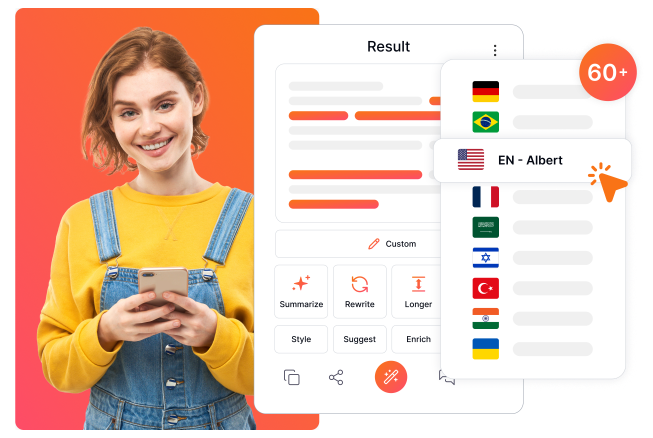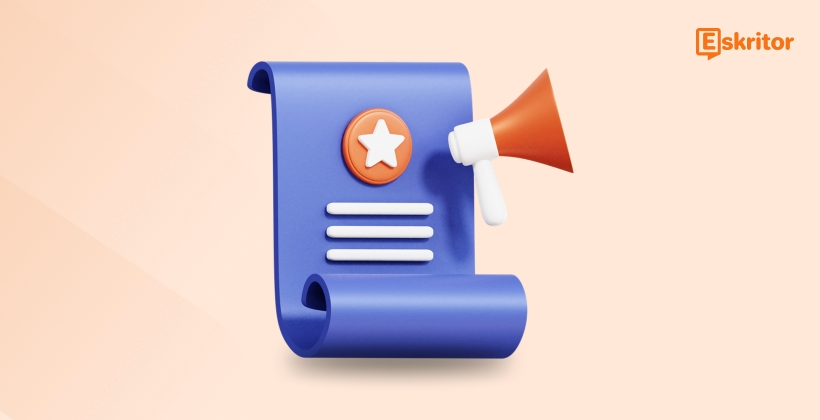Mastering Content with AI Editing Tools
Mastering Content with AI Editing Tools
Blog Article
Top AI Writing Tools to Boost Productivity
Synthetic intelligence (AI) writing technology has evolved rapidly within the last decade, reshaping the way we develop and connect to written content. From syntax correction resources to AI-generated novels, the number of choices appear limitless. But where precisely is that engineering heading? Let's examine the improvements, issues, and potential potential of AI writer.

How AI Writing Engineering Operates Today
At their core, AI publishing engineering depends on Natural Language Running (NLP) and unit learning. These systems permit designs to understand, produce, and improve individual language. Resources available today do well at jobs like:
1. Material Creation
AI has achieved a place wherever it can make complete website articles, social networking sayings, and actually news articles. Some designs are designed for mimicking human publishing styles so effectively that distinguishing between AI- and human-written content has become significantly difficult.
2. Grammar and Design Suggestion
AI-powered writing personnel don't only check for grammar and punctuation problems; they also give ideas to enhance tone, clarity, and sentence structure, creating complicated writing available to a wide audience.
3. Feeling Examination
AI may evaluate the emotional tone of a bit, enabling organizations to determine how their communications may resonate with readers. That is especially of good use in advertising and client interaction.
The Current Styles in AI Publishing Technology
Several trends are shaping the following period of AI-powered publishing methods:
• Personalization
AI writing engineering is increasingly effective at tailoring content to personal preferences. Models may adapt to a user's writing style, ensuring the productivity feels authentic.
• Multilingual Capabilities
Many AI resources are growing their global achieve by providing improved translation characteristics and support for multiple languages.
• Enhanced Study Characteristics
AI resources today possess the capacity to analyze large levels of information and present fact-checked, well-researched writing in moments, simplifying the method for professionals in industries like legislation, financing, and journalism.
What the Potential Holds for AI Writing Engineering
1. Improved Creativity
While current AI is good at generating content, their imagination continues to be restricted to patterns within their teaching data. Potential AI is not only estimated to assist but to produce unique, topical works that concern human imagination.
2. Seamless Venture
Envision an AI that works alongside you in real-time, doing your phrases, conducting live edits, and even brainstorming ideas. AI publishing resources might shortly become co-authors, permitting imagination to flow uninterrupted.
3. Honest and Available Style
With growing problem about plagiarism, misinformation, and bias, designers will work toward more transparent AI education operations and ethical implementation. Future resources will probably offer more detailed details and procedures to make certain accountability.
Issues and Concerns
The progress of AI publishing technology isn't without hurdles, including:
• Ethical Problems

Who possesses content produced by AI? How can we ensure AI-generated material isn't distributing misinformation? These debates remain unresolved.
• Human-AI Balance
Can AI complement individual imagination or completely replace specific functions? Several writers and artists concern yourself with their relevance in an AI-driven world.
• Supply Divide
Not absolutely all businesses or parts have equal usage of cutting-edge AI methods, raising questions concerning the impact of the technology on world wide inequality.
Changing the Way We Create
AI writing technology continues to be in their infancy compared to its potential. Whether you're a student crafting documents, a content marketer targeting specific audiences, or a author seeking motivation, AI tools can continue to revolutionize the publishing process. The next decade promises breakthroughs that blend individual ingenuity with equipment intelligence, creating a potential where writing is more efficient, accessible, and impactful than actually before.
Report this page